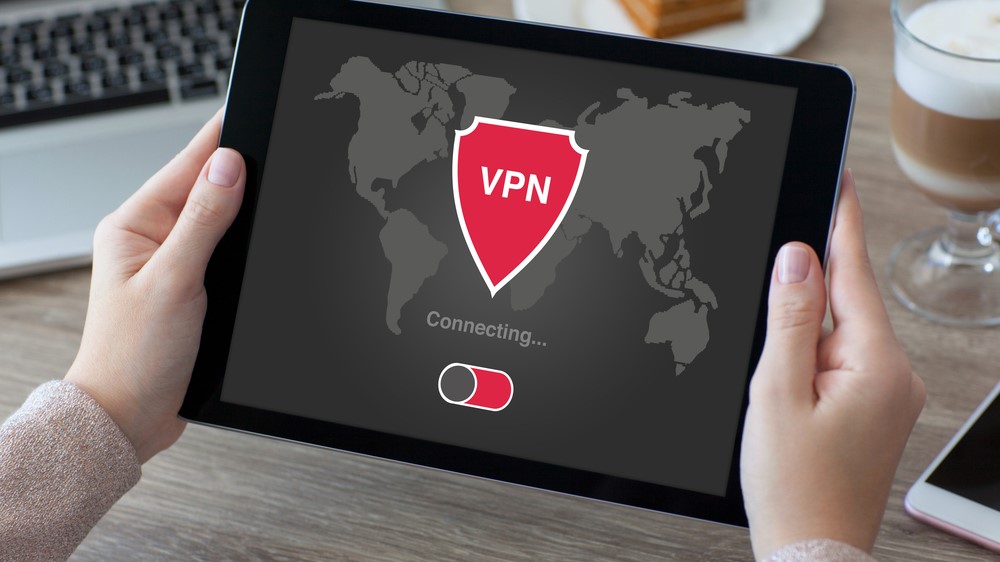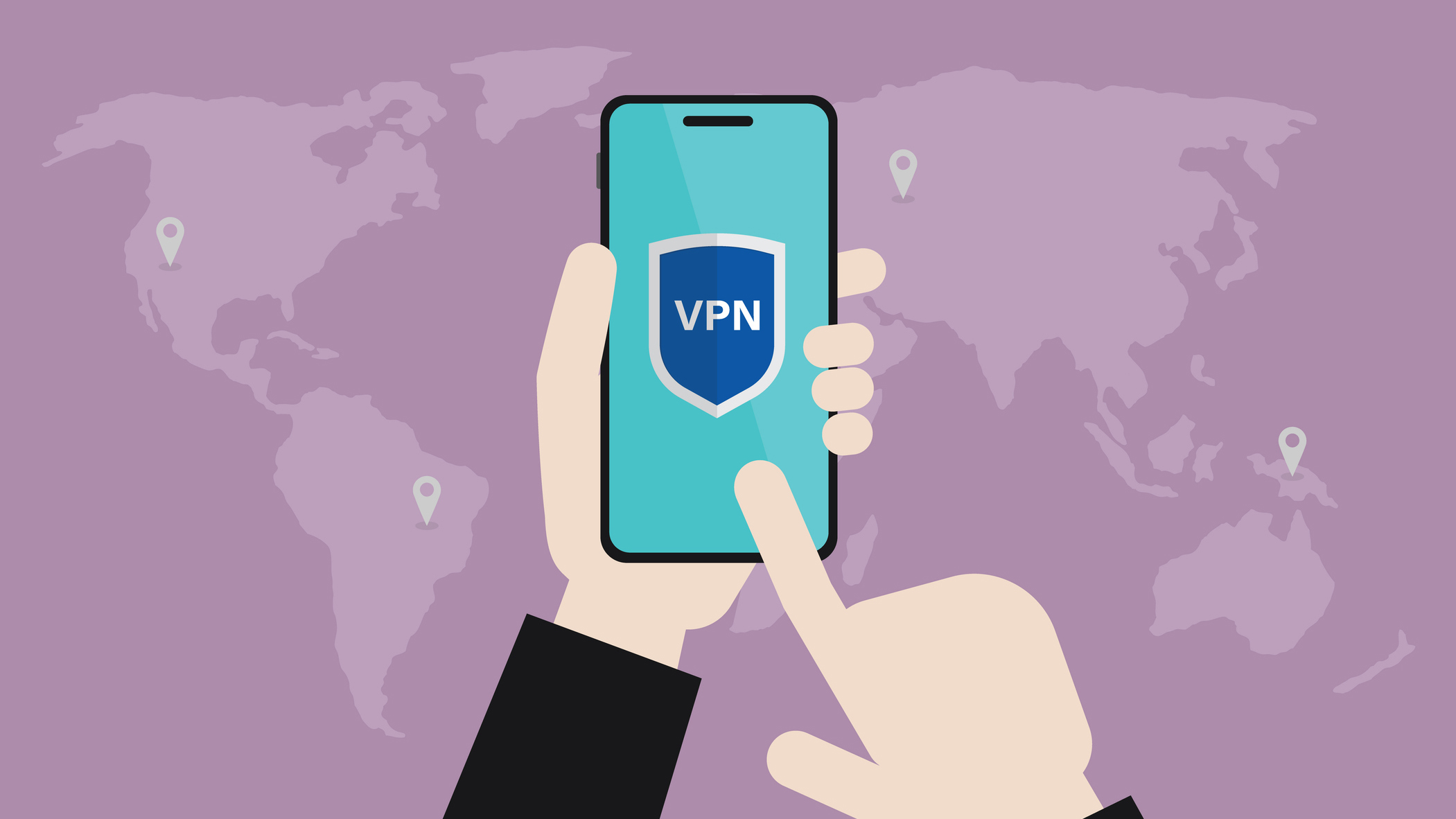7 VPN predictions to look out for in 2025
What does the new year hold for the VPN industry?

Throughout 2024 we once again saw that the use of virtual private network (VPN) services remains high across the world. People have been turning en masse to the security software as a means to bypass ever-growing internet restrictions, protect their privacy and security against new threats, and improve their overall online experience.
A VPN's main job is, in fact, encrypting all your internet connections to prevent third parties from snooping on your activities. It also spoofs your real IP address location, giving your privacy an extra boost while granting access to otherwise geo-restricted content. Furthermore, most services these days also offer extra tools, making them way more than just a VPN.
Year in and year out, all the best VPN providers have shown their commitment to staying on top of the current cybersecurity landscape to reshape their offerings accordingly. Some of them have shared with TechRadar their predictions of what the new year holds for the VPN industry.
1. More VPNs will add quantum-safe encryption
With the full implementation of quantum computing expected to take place between 2030 and 2035, it's just a matter of time before current encryption methods become obsolete.
This year saw some VPNs implementing new quantum-resistant encryption standards, and all providers I've spoken with expect these efforts to intensify even more in 2025.
As Subbu Sthanu, CCO at IPVanish, put it: "For VPN providers, early adoption of PQE [post-quantum encryption] will not only improve security but also gain an edge in the marketplace." Specifically, Marijus Briedis, CTO at NordVPN, predicts that all encryption tools will move toward so-called cryptographic agility. "A capability that allows systems, protocols, or apps to seamlessly adapt to new cryptographic algorithms or standards without requiring significant redesign or disruption," he explained.
At the time of writing, NordVPN, Windscribe, ExpressVPN, PureVPN, and Mullvad have already implemented post-quantum algorithms alongside traditional protections. IPVanish, Proton VPN, and Surfshark have all shared plans to begin integrating PQE at some point next year.

2. Leveraging AI to fight against AI-driven threats
In 2024, generative AI continued to reshape the cybersecurity landscape, generating new digital threats. VPN providers, alongside other cybersecurity developers, will likely continue harnessing AI power to fight against AI-driven threats.
NordVPN, for example, sparked the trend in 2024. The newly launched NordVPN’s Threat Protection Pro tool, in fact, showcases how AI can elevate traditional cybersecurity offerings into smarter, more adaptive solutions.
"This integration paves the way for a future where cybersecurity tools become not only more effective but also more intuitive for users," said Briedis.
Mullvad then recently launched its DAITA (Defense Against AI-guided Traffic Analysis) feature to fight against sophisticated AI-powered surveillance. "And we will continue this work throughout 2025," Jan Jonsson, Mullvad CEO, told TechRadar.
Surfshark also saw AI both as a threat and a "powerful tool for enhancing our products, such as improving diagnostics and threat tracking," said Justas Pukys, VPN Product Manager at Surfshark.
3. Censorship-resistant VPNs to be even more crucial
Once again, VPN usage has soared across the world in 2024 as a means to bypass stricter internet censorship. Proton VPN documented spikes in sign-ups in at least 15 countries since January, with restrictions in Pakistan, Kenya, and Mozambique.
2024 saw the most worldwide elections in recent history. Political turmoil around these events prompted more countries to temporarily shut down the internet or social media apps.
For the first time ever, Western democracy France restricted TikTok in its New Caledonia territory over anti-government protests. Experts expect internet censorship to keep rising in 2025.
"This means that it's going to be vital for VPN companies to adapt to rapidly evolving and expanding internet censorship methods so that people can access the unfiltered internet no matter where in the world they live," said David Peterson, General Manager at Proton VPN, adding he also expects to see a rise in countries with a minimal history of internet censorship starting to introduce internet blocks.

4. The need for VPN security suites gets stronger
With the cybersecurity landscape constantly evolving, some VPN providers have already started offering multi-faceted protection to help you fight back against different threats with just one subscription. Experts predict that VPN security suites will become even more crucial next year.
"What were once separate solutions – such as antivirus software, malware scanners, encryption tools, file storage, and sharing platforms, personal data leak monitoring, and VPNs – are now evolving into comprehensive, all-in-one offerings or being sold under a unified umbrella," said Briedis from NordVPN. "A VPN is no longer just a VPN; it has transformed and will continue to evolve into a more sophisticated cybersecurity suite."
Sthanu from IPVanish also reiterates the fact that: "VPNs are no longer just about tunneling and IP address privacy" as users expect these services to deliver way more than that for an an easy approach to online security.
Pukys from Surfshark agrees. He said: "Recognizing this growing need and pain point, Surfshark has already offered Alert, Alternative ID, Antivirus, and Search features in our suite. We’re actively exploring new ways to offer more complete protection for users."
5. OpenVPN remains an industry standard
VPN protocols are a crucial part of a VPN's toolkit – they give instructions to the app and server on how to set up a connection and securely communicate with each other. OpenVPN and WireGuard are the current standards across the industry, known for their security, adaptability, and performance.
The newer of the two, WireGuard, is characterized by a lighter string of codes which makes it faster and easier to implement. According to Mullvad, WireGuard is the future, and the provider announced it will remain the only VPN protocol by January 2026.
However, Mullvad's plan doesn't seem likely to revolutionize the VPN industry, for now, as other providers predict OpenVPN will remain an important protocol in 2025.
"OpenVPN, it’s here to stay, especially now that the protocol can achieve speeds comparable to WireGuard," said Bredis from NordVPN. Sthanu from IPVanish also ensures that: "OpenVPN’s long-standing track record ensures it remains a trusted solution for users with specific needs." So did Pukys from Surfshark: "We listen to our users and recognize that each protocol has its purpose, even if some see less demand."
We are removing support for OpenVPN on the 15th January 2026.Read more here: https://t.co/I2b9LNExwTNovember 8, 2024
6. The need for trustworthy protection
As users increasingly rely on VPN services to secure their digital lives, cybercriminals are also taking advantage of this surge for their own malicious ends. Experts predict, in fact, that also VPN scams will rise in the new year.
"Trust remains a cornerstone for users in choosing VPN providers, and while technology plays a crucial role, trust is primarily built through transparency, a strong track record, and a history of ethical behavior," said Jonsson from Mullvad.
He suggests that providers should prioritize independent audits and no-logging policies as users may look beyond marketing claims when choosing a VPN service.
Pete Membrey, Chief Engineering Officer at ExpressVPN, also believes that the need for trustworthy protection will be especially high in 2025. He also said: "There will be a shift towards developing VPN applications using memory-safe programming languages like Rust to enhance security and reduce vulnerabilities from memory-related bugs."
7. Regulatory challenges will continue
Along with internet censorship, VPN usage has increasingly become a target in 2024. Most notably, Russia passed a new law in March banning the promotion of circumventing tools, while blocking 60 VPN apps on the country's official Apple App Store. Pakistan also tried to ban unregistered VPN usage, for then halting the implementation of the rules at the last minute due to lack of legal grounds.
Again, VPN experts predict that similar regulatory efforts will increase in 2025. According to Parsons from ExpressVPN, this threatens the global and free nature of the internet and could lead to the fragmentation of the online ecosystem.
She said: "VPN providers, industry groups, and civil society will need to work together to advocate for people's right to privacy no matter where they are, making the industry’s future a mix of advanced security and navigating regulatory challenges."
Jonsson from Mullvad then expects the ongoing debate about age limits and social media bans to intensify during 2025. According to Jonsson, the main issue here will be data collection. He said: "If big tech companies and data brokers were banned from collecting, storing, and mapping everything people do on the internet – something they do even outside their own platforms – it would eliminate many problems from the source."

Chiara is a multimedia journalist committed to covering stories to help promote the rights and denounce the abuses of the digital side of life – wherever cybersecurity, markets, and politics tangle up. She believes an open, uncensored, and private internet is a basic human need and wants to use her knowledge of VPNs to help readers take back control. She writes news, interviews, and analysis on data privacy, online censorship, digital rights, tech policies, and security software, with a special focus on VPNs, for TechRadar and TechRadar Pro. Got a story, tip-off, or something tech-interesting to say? Reach out to chiara.castro@futurenet.com